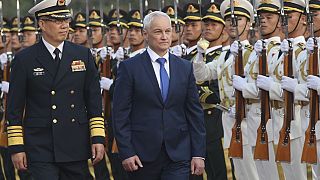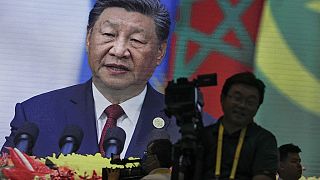China
A joint World Health Organisation (WHO)-China study researching the origins of COVID-19 in Wuhan has concluded that a laboratory leak is "extremely unlikely", the Associated Press reported after seeing a draft of the team's report that was leaked to the media.
The document, which was recently shared with WHO member states, purportedly says the most likely of four scenarios the researchers evaluated is that the virus SARS-CoV-2, which causes COVID-19, was transmitted from bats to humans through another animal.
Researchers also evaluated the possibility of the virus directly spreading from bats to humans. They say that spread through “cold-chain” food products was possible but not likely, the AP reported.
The draft report does not determine whether the outbreak started at a Wuhan seafood market, which had one of the earliest clusters of cases in December 2019.
WHO director-general Dr Tedros Adhanom Ghebreyesus said the report was received over the weekend from the team that travelled to Wuhan and will be published on Tuesday.
"All hypotheses are on the table and warrant complete and further studies. I will have more to say following further review of the report," Dr Tedros said at a press conference on Monday.
The WHO's report into the origins of the virus has been highly anticipated for the answers it could provide about preventing future pandemics.
But the team has also come under criticism for delays in getting on the ground, their methodology and the involvement of China, which has rejected criticism of its early handling of COVID-19.
The Biden administration had welcomed news earlier in March that the WHO would delay the release of the interim report amid concerns about how the early findings were communicated.
“We’ve got real concerns about the methodology and the process that went into that report, including the fact that the government in Beijing apparently helped to write it, but let's see what comes out in that report,” US Secretary of State Antony Blinken said in a recent interview with CNN.
"Our focus needs to be on building a stronger system for the future," he added.
China rejected criticism of their involvement in the report with foreign ministry spokesperson Zhao Lijian asking whether by speaking out the US was "trying to exert political pressure on the members of the WHO expert group”.
Although many experts have said animal to human transmission was the most likely origin of the virus, some have said a laboratory leak scenario should be considered.
The former director of the US Centres for Disease Control and Prevention (CDC) Robert Redfield told CNN recently that he personally believed the most likely origin of the coronavirus was that it originated in a laboratory in Wuhan.
"It's not unusual for respiratory pathogens that are being worked on in a laboratory to infect a laboratory worker," the former CDC chief told CNN, emphasising that it was his "opinion".
"I do not believe this somehow came from a bat to a human and at that moment in time, the virus came to the human, become one of the most infectious viruses that we know in humanity for human-to-human transmission," he said.
The WHO draft report provides several reasons why it rules out the laboratory leak scenario. The researchers state that lab accidents are rare and there is no record of viruses closely related to SARS-CoV-2 in any laboratory before December 2019, according to the AP.
As early as March 2020, a signed letter from 27 scientists argued that the most likely origin of the virus was from wildlife.
The scientists denounced suggestions the virus did not have a natural origin as conspiracy theories.
The 10-nation WHO team stayed for nearly a month and visited markets, hospitals and research centres, including the highly secure Wuhan Institute of Virology that has been the subject of speculation because of its large collection of bat virus specimens.
But the mission has still come under criticism from some experts concerned about its independence.
Several scientists across Europe, the US and Australia said in a March 2021 letter that the WHO team "did not have the mandate, the independence, or the necessary accesses to carry out a full and unrestricted investigation into all the relevant SARS-CoV-2 origin hypotheses."












00:43
Critically-endangered bongo antelope calf born in British safari park
01:00
Genetically modified guinea pig 'Peru' celebrates 20th birthday
01:28
Mpox is not the new COVID - WHO
01:00
WATCH: Gastropod glory
01:10
Cameroon reintroduces measures to curb COVID-19 resurgence
00:55
Senegal says it detected Covid-19 in returning Hajj pilgrims